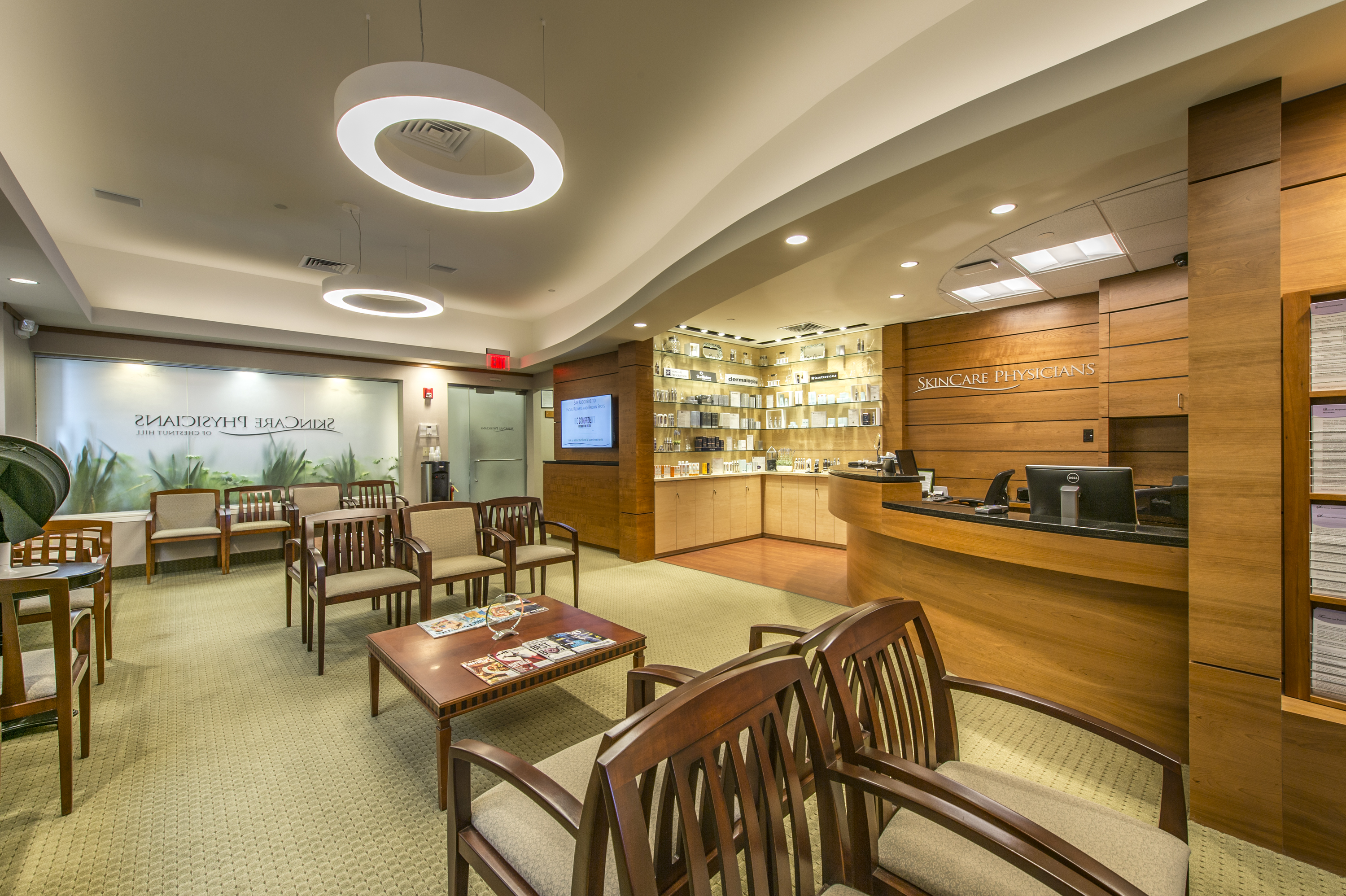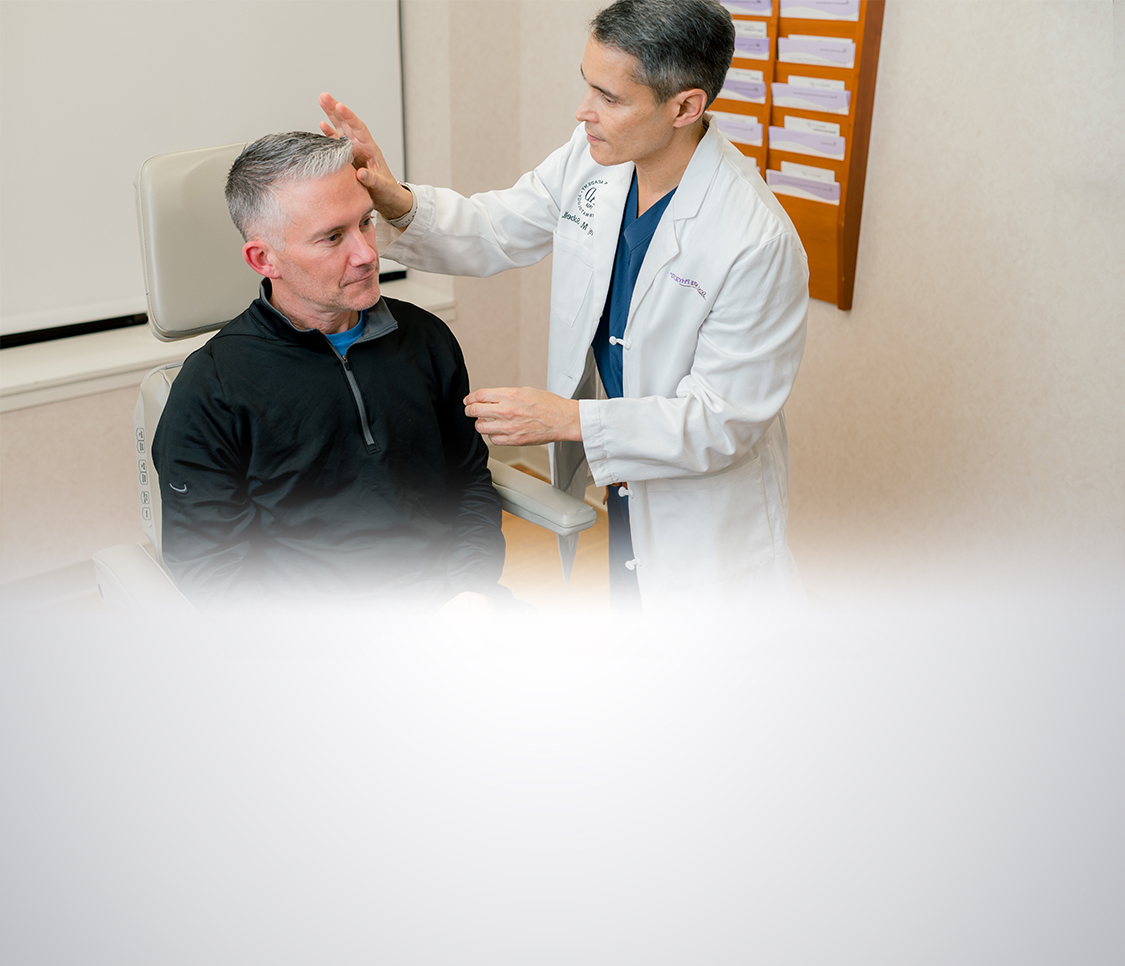Hair Loss
The impact of thinning hair and hair loss can go beyond appearance; as it can make people feel self-conscious and insecure. While the majority of people who are balding or have thinning hair are men, surprisingly many women are impacted too. SkinCare Physicians is a trusted resource for safe, effective, non-surgical hair restoration options, including platelet-rich plasma (PRP) treatment, oral medication, vitamins and topical solutions. For patients who want permanent hair restoration and need treatment beyond the options available at Skincare Physicians, we may recommend surgical hair transplantation. In greater Boston, MA, our facility is known for providing exceptional treatment with genuine care and consideration for each patient.
Our physicians and nurses understand the process of hair loss in both men and women. They have specialized training and experience in safely treating both medical and genetic causes of hair loss. To find out about your hair loss treatment options in greater Boston, request a consultation online or call our office at (617) 731-1600 to schedule an appointment.
Treatment Options
Medical evaluation and treatment by an experienced provider from our team address causes of hair loss, which can include hormones, stress, genetics, and certain diseases.
- Platelet-rich plasma (PRP) treatment is an all-natural, non-invasive hair restoration technique that utilizes the patient’s own biologic material, and helps to stimulate hair regrowth as well as reduce the effect of thinning. It is most commonly used to successfully treat a variety of hair loss conditions in both men and women. The procedure involves drawing blood, processing it to harvest the PRP, and finally injecting the scalp with the patient’s own PRP.
- Propecia® (finasteride) is an oral medication that may be prescribed for patients with confirmed male pattern baldness (androgenic alopecia). Studies have shown that over 80% of men who take Propecia® will stop losing hair, and on average 60% will actually grow hair back. In some cases, Propecia® can also be used for post-menopausal women.
- Vitamins are a standard, daily front line treatment that can have a significant and preventive benefit for hair loss. Products such as Nutrafol and Vivascal have been used for years by our patients with nice results
- Rogaine® (minoxidil) is an over-the-counter adjunctive topical daily treatment that also helps to prevent future hair loss in many people who use it, and in some cases can help to regrow hair. We typically recommend the minoxidil 5% foam which is an effective treatment option for both men and women.
- LED light devices typically fit over the scalp and are used to deliver targeted light energy therapy to the scalp. They can be utilized at home. Although data on LED lights for hair loss is mixed, there are some scientists who advocate for the use of LED light therapy as an adjunct to other forms of hair loss treatment.
- Hair transplants involve removing hair from the back of the scalp, which is not prone to hair loss, and transplanting it to balding or thinning areas. The hair is placed in tiny grafts of approximately 1 to 5 hairs with special attention to the natural aesthetics of hair growth. Hundreds of grafts (thousands of hairs) can be transplanted in one session. The combination of effective donor site harvesting and recipient site transplantation are the keys for a successful hair transplantation procedure. Skincare Physicians works with some of the best hair transplant surgeons in the Boston area to help our patients achieve the optimal results possible. The initial consult with one of our dermatologists is an essential aspect of the decision-making process and a chance to inform patients adequately about the surgical hair transplantation procedure and expectations.




